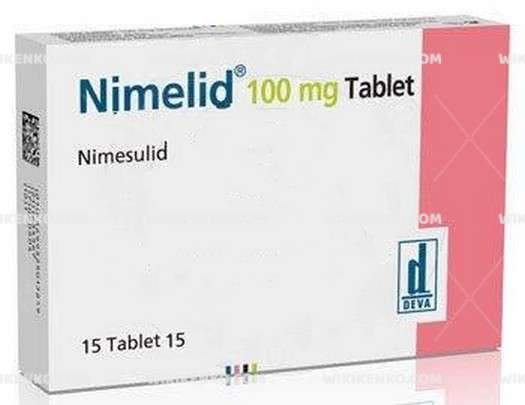Description
Discovering Nimelid Tablet
Nimelid Tablet serves as an indispensable pain-relieving medication, designed to address a spectrum of inflammatory conditions. From the complexities of rheumatoid arthritis to the discomfort of postoperative pain, fever, and period pain, this non-steroidal anti-inflammatory drug (NSAID) offers a reprieve from discomfort.
Unveiling the Composition
Characterized by a yellowish hue, Nimelid Tablet presents itself in a round form and remains devoid of any odor. At its core lies 100 mg of Nimesulide, a key component within the NSAID category. This formulation is neatly encapsulated within blister packs, with options of 15 or 30 tablets.
Applications
The range of applications for Nimelid Tablet is expansive. This medication is adept at treating acute pain, encompassing menstrual pain (primary dysmenorrhea). Notably, the treatment duration should not exceed 15 days. Furthermore, it extends its efficacy to alleviate discomfort stemming from headaches, migraines, nerve pain, toothaches, sore throats, menstrual pains, arthritis, and muscle aches.
Unveiling the Ideal Dosage
The optimal administration of Nimelid Tablet is alongside meals, a strategy aimed at averting stomach disturbances. Embracing the principle of using the minimum effective amount for the shortest duration is paramount. Consistency in medication intake is emphasized, as missing doses may compromise efficacy.
Side Effects
Nimelid Tablet might yield certain side effects, which include diarrhea, nausea, and vomiting. Should these reactions persist or intensify, consulting a healthcare professional is advised. A medical expert can offer guidance on preventive measures or potential ways to alleviate the symptoms.
Exercising Precautionary Measures
Prudent utilization of Nimelid Tablet mandates adhering to a set of precautions:
- Medical Conditions: Prior to engaging with Nimelid Tablet, a comprehensive medical history should be shared, encompassing stomach ulcers, bleeding, perforation, liver or kidney disorders.
- Interactions: All ongoing medications warrant disclosure. Some drugs may interact with Nimelid Tablet, potentially affecting efficacy or elevating the likelihood of side effects.
- Pregnancy and Breastfeeding: Expectant or breastfeeding individuals should engage in dialogue with healthcare providers before embarking on Nimelid Tablet usage. The compatibility of the medication with these phases should be carefully assessed.
- Allergies: Individuals with a history of allergic reactions to Nimesulide or any other NSAID should avoid this tablet.
Defining the Recommended Dosage
The recommended dosage for Nimelid Tablet is one tablet (100 mg), administered twice daily after meals. Notably, the maximum treatment duration spans 15 days. Adherence to the prescribed regimen is pivotal to its efficacy. However, consulting a healthcare professional remains essential to ascertain an appropriate dosage based on individual needs.
Nimelid Tablet, a non-steroidal anti-inflammatory drug (NSAID) infused with Nimesulide, demands vigilance when co-administered with other medications. Some NSAIDs possess the potential to elicit unpredictable interactions with other drugs, possibly impacting their effectiveness and amplifying side effects. The consultation of a healthcare professional is particularly vital when contemplating the combination of NSAIDs.
Concluding Thoughts
In conclusion, Nimelid Tablet emerges as a dynamic contender in the realm of pain management. Its wide-ranging applications, encompassing inflammatory conditions and pain relief, underscore its significance.
As with any medication, adherence to prescribed guidelines, candid communication with healthcare providers, and vigilance over potential interactions are pivotal. Pain management mandates a comprehensive and individualized approach, and this tablet stands as a versatile tool in this endeavor.












Reviews
There are no reviews yet.